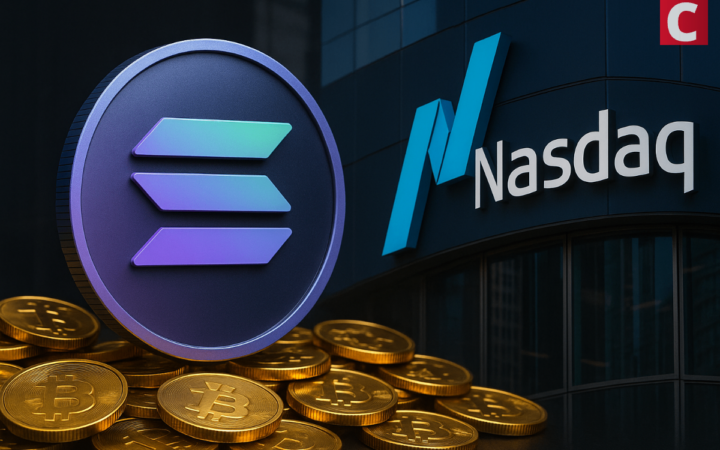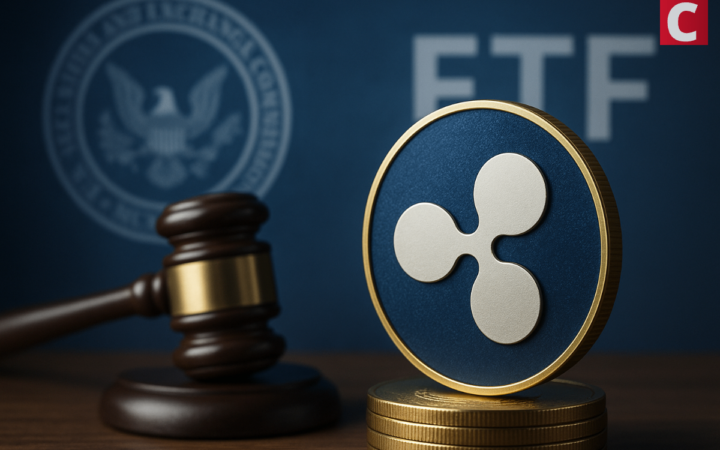
Jeff Fawkes is a seasoned investment professional and a crypto analyst. He has a dual degree in Business Administration and Creative Writing and is passionate when it comes to how technology impacts our society.
EOS blockchain gains a new massive project called Voice by Block.one. The project is dedicated to privacy-oriented social networking.

The new EOS-based social network Voice in its beta version will start on 14 February 2020 and is set to reward users with its token, thus bringing the desired freedom of speech and ad-hoc monetization that lacks in other social networks.
Particularly, using the blockchain technology, Voice can set all its operations to move through blockchain. When blockchain records inner operations of the network, it is impossible to insert closed code. Social networks like to record their client’s moves, personal information, and files, without permission.
When it comes to privacy, Facebook and any other network you can name may have issues of different sizes. Some analysts call Voice a “Facebook Killer” because the new social network’s main concern is privacy through transparency. Voice aims to bring the power of uncensored content to those who cherish both social networking and blockchain-based tech.
During a lecture in Washington D.C., CEO Voice Brendan Blumer and CTO Voice Dan Larimer elaborated more about their stimulus:
“Social media is broken. Designed to use us, our data and attention are harvested into trillion-dollar profits for large corps, big tech, banks, and Wall Street interests, while we struggle to protect ourselves against the consequences of having our attention auctioned to anonymous parties, and our personal information traded on the open market. This misalignment of interest between us and the platforms we once trusted continues to increasingly expose us to data profiling, identity theft, cyberbullying, and persuasive misinformation.”
Voice admits that the regulatory environment is complicated, and the blockchain is a tricky field. However, since the first announcement, thousands of people already show interest in the platform. The crowds include the so-called “thought leaders” and even the press, according to The Voice website. This sounds like a very good start: not every blockchain platform can make people sing up before the official launch without being a scammy ICO sale.
Coins are “cycling value back into users’ hands in the form of the Voice Token. Voice Tokens are earned by being you, and expressing your voice; they possess the utility of attention, and can be used to elevate content in different ways throughout the ecosystem.”
We consider that the company will put lots of effort and money into many of the ongoing ventures. For instance, Block.one has paid $30 million to MicroStrategy web dealers only to obtain the Voice.com domain name.
The company has 9.5% of the total coin’s supply and considers itself as a “small, but significant” player. It claimed:
“Our goal is to highlight improvements and features that we believe uphold the integrity of the network and push these metrics to new heights. Ultimately, we will begin participating in block producer voting to more actively join other EOS token holders in ensuring the EOS network remains as healthy and revolutionary as ever”
Block.one team will facilitate their stash of EOS coins, which are now available on the eToro‘s eToroX platform, to start voting for the block producers. Those are the companies that are running block confirmation in several DPoS and PoS-based blockchains. Admitting that Block.one team has a huge experience, like going through the troubles with the U.S. government’s SEC, we presume they will do the best to rule “their own country” according to best practices.
The EOS blockchain is now passing a crucial stress-test. It is a constant activity of a smart contract that assigns EIDOS tokens among a network of initial investors. An interesting take here is that the smart contract is loading the network. Token distribution will last for 15 weeks since November 11.
Such an airdrop is dedicated to a token that has no real utility and is only good for dumping it via exchanges, according to Cryptovest. During the network’s congestion in the first week of the distribution process, the trading decreased. Volume felt from $1 million per day to $500,000 per day. Some leading network dApps were still online and working, but the smaller ones needed to wait for confirmation. Just like that canonical OG bitcoiners after setting a low fee and forgetting to add RBF flag to the payment.
Disclaimer: Coinspeaker is committed to providing unbiased and transparent reporting. This article aims to deliver accurate and timely information but should not be taken as financial or investment advice. Since market conditions can change rapidly, we encourage you to verify information on your own and consult with a professional before making any decisions based on this content.

Jeff Fawkes is a seasoned investment professional and a crypto analyst. He has a dual degree in Business Administration and Creative Writing and is passionate when it comes to how technology impacts our society.




